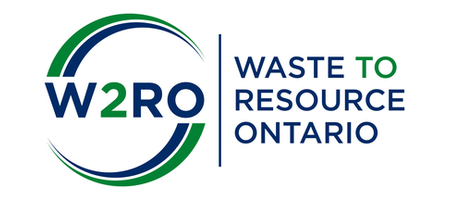Activity
-
Waste to Resource Ontario posted an articleInterested in presenting or sharing your research at CWRC 2020? September 21-23, 2020 see more
Call for Papers: Interested in presenting at the 2020 CWRC?
This conference is of primary interest to waste generators, stewards, brand owners, municipalities, private waste sector companies and property management companies. If you are involved in any of the following; you will gain insight and be able to share ideas with facility owners and operators, regulators and policymakers, academia and students.
Presentations at the conference will be assigned to different ‘tracks’ outlined in the Call for Papers form. Speaking opportunities include: general sessions, opening keynotes, a closing speaker. Members of the CWRC Annual Conference Committee are responsible for ranking proposals, speakers, and timelines of topics. Share your insight and knowledge by presenting a paper at the 11th Canadian Waste to Resource Conference (CWRC). Conference speakers gain visibility in the sector, as well as contribute to the advancement of the profession. Presentation papers relating to all areas of waste management will be considered.
The deadline for submission of papers is February 7th, 2020.
Call for Poster Presentations: Submit your research and/or study for presentation at the 2020 CWRC!
Each year the CWRC provides an opportunity for professors and students to
showcase their research to waste and recycling sector experts from government,
municipalities and leading waste management organizations. Poster presenters will have a chance to present their findings during the conference in the poster exhibit area located in a central event spaceThe CWRC is recognized across the country as “the place to be” for waste management professionals, providing exposure opportunities for research outcomes and for students, or academia looking to establish links within the sector.
The deadline to submit your poster presentation is August 15, 2020.
-
ArticleIt's time for Ontario to require drivers to slow down and move over for waste collection workers. see more
Waste collection workers have one of the most dangerous jobs. Every day on the road they face the risk of being seriously injured or even killed by a distracted or impatient driver.
Last December, a Wisconsin city mourned the loss of a sanitation worker and local pastor who was struck by a Mustang that crashed into the back of a municipal garbage truck while he was collecting recyclables. According to FOX6 Now, the worker was found pinned between the car and the back of the truck before being taken to a local hospital where he later died from his injuries.
Closer to home, a worker in 2012 was struck by a Sport Utility Vehicle while collecting garbage in Ottawa and later died from his injuries. According to CTV News, the worker, who was 46 years old at the time of the accident, had just gotten engaged before he lost his life.
Incidents, like these, are tragically part of a larger problem. The Bureau of Labor Statistics in the United States found in its 2015 Census of Fatal Occupational Injuries Summary that refuse and recyclable material collection, as an occupation, had the fifth highest fatal work injury rate. In 2015, 33 waste collectors were killed on the job – a 22% increase from the previous year.
Addressing the risks faced by waste collection workers
The risk is real. That’s why it has been addressed by many jurisdictions across North America, including British Columbia, with new laws to require drivers to slow down and move over for waste collection workers and vehicles. Ontario, however, has not yet taken action.
It’s been a decade and a half since the Ontario government passed legislation to make it mandatory to slow down and move over for emergency vehicles. The Highway Traffic Act was amended again in 2015 to extend the same protections to tow-truck drivers in the province. The penalties for breaking this law are serious. Drivers can receive a fine of $400 to $2,000 and three demerit points for their first infraction. While enforcement remains essential, this legal change has sent a clear message to drivers that the safety of roadside workers must take priority. Unfortunately, waste collectors still do not enjoy the same protections in Ontario.
British Columbia, by contrast, protects all roadside workers. In 2014, the B.C. government strengthened its Motor Vehicle Act to require drivers to slow down and move over for “all vehicles stopped alongside the road that have flashing red, blue or yellow lights.” This legislative update not only improved safety but also simplified traffic rules for drivers.
North American standard on safety for the sector
South of the border, more states continue to move forward on this issue. Last September, according to Waste Dive, New York became the 12th state to pass a law to require drivers to slow down and get around garbage trucks, and Kentucky became the 13th to pass a similar bill to protect waste collection workers.
With so many jurisdictions adopting this sensible reform, there’s no reason that Ontario should be any different. We believe roadside workers deserve the same protections no matter where they live or what uniform they wear.
That is why the OWMA is calling for Ontario to bring its traffic laws into line with what is becoming the standard for roadside safety in North America. The time has now come for our province to pass a slow down, move over law for waste collection workers.
These changes will provide a safer working environment for waste collectors and help ensure they can safely go home to their families after a long-day on the job.


